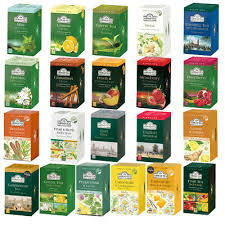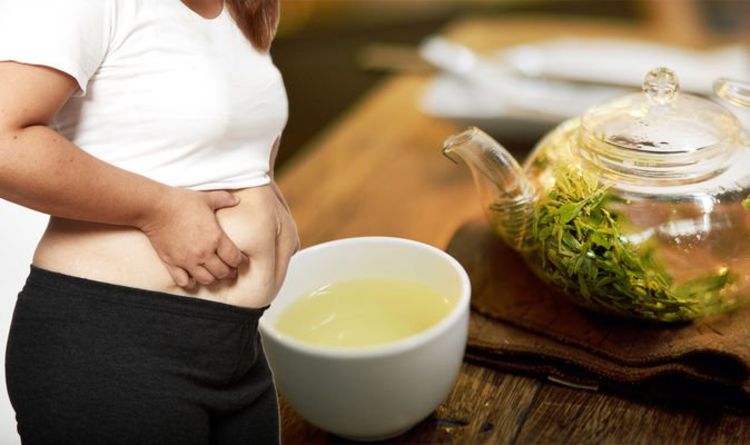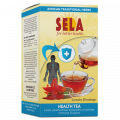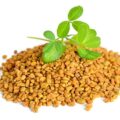Ahmad Tea is a tea company based in London, England. It sells a range of tea bags, specialty teas and gifts including: black tea, green tea, flavoured teas, and herbal teas. Nearly thirty five years ago in Hampshire, England, a young tea-trader pursued his vision to create exceptional tea that could be enjoyed by anyone, anywhere in the world. Inspired by the pure love of tea, he and his brothers embarked on a mission to find and work with the world’s finest tea gardens. They built trusting and long term partnerships with the owners of those tea gardens so they could blend the world’s most extraordinary teas.
Today, Ahmad Tea brings over 30 million cups of tea a day to tea lovers in more than 80 different countries. From the world’s most influential urban hubs, to the tiniest remote villages, everyone can enjoy a perfectly brewed cup of Ahmad Tea.
Nutritional Value
“There doesn’t seem to be a downside to tea,” says American Dietetic Association spokeswoman Katherine Tallmadge, MA, RD, LD. Taken without milk or sugar, tea contains no calories and the addition of semi-skimmed milk adds approximately 13 calories to a cup, making tea a healthy alternative to most soft drinks and beverages. Tea is known to be a natural source of fluoride, potassium, manganese and vitamin B2.
Hydration
There is a long held belief that caffeinated drinks such as tea have diuretic properties and thus have an adverse effect on hydration, potentially promoting dehydration in the drinker. Tea consumption does not produce a diuretic effect unless the amount of tea consumed at one sitting contains more than 300mg of caffeine. This is equivalent to six or seven cups of tea at one sitting. Single servings of caffeine at doses exceeding 300mg may have a diuretic effect. However, a tolerance to caffeine develops so in the unlikely event of there being any diuretic effect, this effect is diminished in people who regularly drink tea. As tea is 99%, water it can make a contribution to daily fluid requirements.
Decreases Cognitive Impairment
In 2010, researchers studying dementia, cognitive decline and Alzheimer’s disease found that people who consumed tea had significantly less cognitive decline than non-tea drinkers. Study participants who drank tea 5-10 times/year, 1-3 times/month, 1-4 times/week, and 5+ times/week had average annual rates of decline 17%, 32%, 37%, and 26% lower, respectively, than non-tea drinkers. Coffee consumption did not show any effect except at the very highest level of consumption, where it was associated with significantly decreased decline of 20 percent. The study used data on more than 4,800 men and women aged 65 and older from the Cardiovascular Health Study to examine change in cognitive function over time. Study participants were followed for up to 14 years for naturally-occurring cognitive decline.
Antioxidants
It is well known that fruit and vegetables are good sources of antioxidants; however what is less well known is the presence of antioxidants in tea. Tea is known to be a valuable source of antioxidants, which assist in fighting free radicals within the body. The major group of antioxidants in tea are flavonoids that appear to be digested, absorbed and metabolized by the body. Green teas contain more of the simple flavonoids called catechins, whilst the oxidization that the leaves undergo to make black tea converts these simple flavonoids to the more complex varieties called theaflavins and thearubigins. Studies have found that antioxidants in tea, especially green tea, may interfere with the growth of bladder, breast, lung, stomach, pancreatic, and colorectal cancers; prevent clogging of the arteries, burn fat, counteract oxidative stress on the brain, reduce risk of neurological disorders like Alzheimer’s and Parkinson’s diseases, reduce risk of stroke, and improve cholesterol levels.
Does Ahmad Tea Burn Fat?
Tea, particularly green, has recently been linked with weight loss in adults. This link has arisen from the basis that tea is thought to have a metabolizing effect upon body fats and therefore prove beneficial to weight loss as part of a weight loss program. There is also a suggestion that green tea consumption can increase endurance in exercise by improving fat metabolism. Teas have a type of flavonoid called catechins that may boost metabolism and help your body break down fats more quickly. And the caffeine in many teas increases your energy use, causing your body to burn more calories. These two compounds probably work best together for any weight loss that may occur. SEE: What Fruits burns Fat
Side Effects of Ahmad Black Tea
Drinking too much black tea, such as more than five cups per day, is POSSIBLY UNSAFE. High amounts of black tea can cause side effects due to the caffeine in black tea. These side effects can range from mild to serious and include headache, nervousness, sleep problems, vomiting, diarrhea, irritability, irregular heartbeat, tremor, heartburn, dizziness, ringing in the ears, convulsions, and confusion. Also, people who drink black tea or other caffeinated beverages all the time, especially in large amounts, can develop psychological dependence. Drinking very high amounts of black tea containing more than 10 grams of caffeine is LIKELY UNSAFE. Doses of black tea this high might cause death or other severe side effects.
Special Precautions & Warnings:
Pregnancy and breast-feeding: If you are pregnant or breast-feeding, drinking black tea in small amounts is POSSIBLY SAFE. Do not drink more than 2 cups a day of black tea. This amount of tea provides about 200 mg of caffeine. Consuming more than this amount during pregnancy is POSSIBLY UNSAFE and has been linked to an increased risk of miscarriage, increased risk of sudden infant death syndrome (SIDS), and other negative effects, including symptoms of caffeine withdrawal in newborns and lower birth weight.
If you are breast-feeding, drinking more than 3 cups a day of black tea is POSSIBLY UNSAFE and might cause your baby to become more irritable and have more bowel movements. SEE: Gala Sausage Roll: Ingredients, Health Benefits, Side Effects
Side Effects of Ahmad Green Tea
When taken by mouth: Drinking green tea is LIKELY SAFE for most healthy adults when consumed in moderate amounts (about 8 cups per day).
Green tea extract is POSSIBLY SAFE for most people when taken by mouth for up to 2 years or when used as a mouthwash, short-term. In some people, green tea extract can cause stomach upset and constipation. Green tea extracts have been reported to cause liver and kidney problems in rare cases.
Drinking green tea is POSSIBLY UNSAFE when consumed for a long time or in high doses (more than 8 cups per day). Drinking large amounts of green tea might cause side effects due to the caffeine content. These side effects can range from mild to serious and include headache, nervousness, sleep problems, vomiting, diarrhea, irritability, irregular heartbeat, tremor, heartburn, dizziness, ringing in the ears, convulsions, and confusion. Green tea also contains a chemical that has been linked with liver injury when used in high doses. In order to reduce the risk for liver injury, take green tea extract with food.
Special Precautions & Warnings:
Children: Green tea is POSSIBLY SAFE for children when taken by mouth in amounts commonly found in foods and beverages, or when used for gargling three times daily for up to 90 days. Not enough is known about safety of green tea extract when taken by mouth in children. However, cases of liver damage have been reported for adults who used green tea extract. Therefore, some experts recommend that children under the age of 18 years old do not take green tea extract.
Pregnancy and breast-feeding: If you are pregnant or breast-feeding, drinking green tea is POSSIBLY SAFE in amounts of 6 cups per day or less. This amount of green tea provides about 300 mg of caffeine. Drinking more than this amount during pregnancy is POSSIBLY UNSAFE and has been linked to an increased risk of miscarriage and other negative effects. Also, green tea might increase the risk of birth defects associated with folic acid deficiency.
In women who are nursing, caffeine passes into breast milk and can affect a nursing infant. Nursing mothers should closely monitor caffeine intake to make sure it is on the low side (2-3 cups per day). High intake of caffeine by nursing mothers can cause sleep problems, irritability, and increased bowel activity in breast-fed infants.
“Tired blood” (anemia): Drinking green tea may make anemia worse.
Anxiety disorders: The caffeine in green tea might make anxiety worse.
Bleeding disorders: Caffeine in green tea might increase the risk of bleeding. Don’t drink green tea if you have a bleeding disorder.
Heart conditions: Caffeine in green tea might cause irregular heartbeat.
Diabetes: Caffeine in green tea might affect blood sugar control. If you drink green tea and have diabetes, monitor your blood sugar carefully.
Diarrhea: Green tea contains caffeine. The caffeine in green tea, especially when taken in large amounts, can worsen diarrhea.
Glaucoma: Drinking green tea increases pressure inside the eye. The increase occurs within 30 minutes and lasts for at least 90 minutes.
High blood pressure: The caffeine in green tea might increase blood pressure in people with high blood pressure. However, this effect might be less in people who consume caffeine from green tea or other sources regularly.
Irritable bowel syndrome (IBS): Green tea contains caffeine. The caffeine in green tea, especially when taken in large amounts, might worsen the diarrhea some people have with IBS.
Liver disease: Green tea extract supplements have been linked to rare cases of liver damage. Green tea extracts might make liver disease worse. Talk to your doctor before taking a green tea extract. Tell your doctor if you have signs of liver damage such as yellowing skin, dark urine, or abdominal pain. Keep in mind that drinking green tea as a beverage in normal amounts is still probably safe.
Weak bones (osteoporosis): Drinking green tea can increase the amount of calcium that is flushed out in the urine. This might weaken bones. If you have osteoporosis, don’t drink more than 6 cups of green tea per day. Taking calcium supplements may help make up for calcium that is lost. If you are generally healthy and getting enough calcium from your food or supplements, taking up to 400 mg of caffeine (about 8 cups of green tea) per day doesn’t seem to increase the risk of getting osteoporosis. SEE: How to Make Bitter Leaf Tea and Health Benefits







